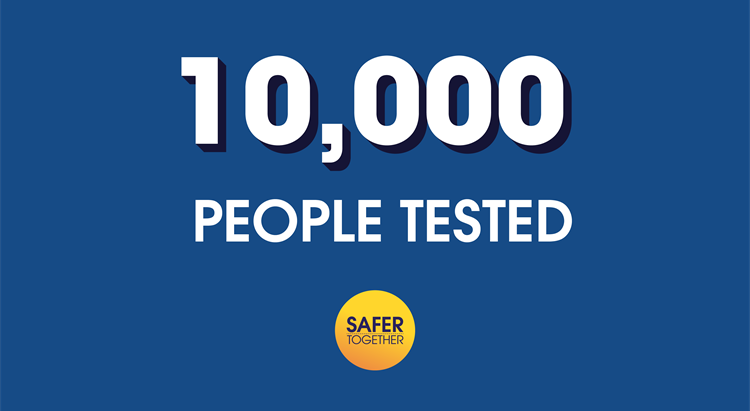23 June 2020

More than 10,000 people have now had a Polymerase Chain Reaction (PCR) test as part of the Covid-19 testing strategy. Of these 10,093 people there have been 318 positive cases.
The increase in testing has been made possible by the expansion of the Island’s PCR testing facilities, with the introduction of a double lane drive-through testing centre near the Airport.
People are currently being tested if they develop symptoms and seek healthcare, if they are admitted to a care home or hospital, and as part of the planned workforce and airport arrivals screening and contact tracing. While the number of symptomatic referrals has dramatically decreased, Islanders are reminded of the importance of calling the helpline and booking a test if they experience relevant symptoms.
The five currently active cases in Jersey are people who have no symptoms and who were picked up through increased PCR testing.
Anyone who arrives in Jersey via a Blue Island essential travel flight or medical flight can choose to participate in the Border Testing Trial, as an alternative to 14-day self-isolation on arrival to the island. To date, more than 90% of passengers have opted to take part in this trial – with no-one testing positive.
The tests involve a swab being taken from back of the throat and nose and takes less than a minute to complete. The swab is processed on-Island if urgent, with results in a couple of hours, or in the UK. Off-Island, results take on average 48 hours to come back and negative results are texted directly to the patient. If the test proves positive a member of the Contact Tracing team will be in touch to advise. All direct contacts of positive cases are tested using on-Island testing at Day 0, Day 6 and Day 8 following the potential exposure.
The Health and Social Services Minister, Deputy Richard Renouf, said: "It is universally accepted that testing is a crucial part of combatting the spread of COVID-19, and in Jersey we can test up to 500 people per day. We are focusing on identifying as many positive cases as possible, especially in those who have no symptoms.
"We have established a professional contact-tracing team, so when we isolate each case, we use contact-tracing to find any others. This is how we have kept our cases to a very low level and it means we are prepared to tackle any new clusters of the virus."